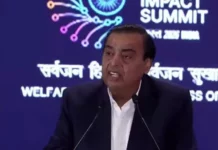MSMEs are said to transcend sectors of the national economy. MSMEs exist in the heart of the global economy and are the main contributors to economic growth. In the Indian context, MSMEs are not only significant players promoting growth but have also acted as lifesavers for millions of workers and small-scale entrepreneurs alike. These entities go beyond national boundaries, influencing global trade-commerce and entrepreneurship.
What is an MSME and its importance?
If you’re on Google, searching “what is MSME”, we’ve got you covered! An MSME stands for micro, small and medium enterprises. In India, their categorization is based on investment in equipment or plants together with annual turnover.
- Micro Enterprises — Investment up to ₹1 crore and turnover up to ₹5 crore.
- Small Enterprises — Investment up to ₹10 crore and turnover up to ₹50 crore.
- Medium Enterprises — Investment up to ₹50 crore and turnover up to ₹250 crore.
The Global Influence of MSMEs
Almost 90% of global businesses are MSMEs, with more than half of employees worldwide being part of this category. These are important players in worldwide trade because they adapt their products/services to changing market demand easily, especially due to innovative efforts that characterize them within India.
For example, in sectors like textiles, handicrafts, or information technology, India’s experience shows how much can be made by exporting micro-enterprises as exporters continue reaping competitive advantage in those sectors through international production chains.
How MSMEs are driving innovation
Small-scale industries in India are well-known for their ability to innovate within budget constraints, hence providing affordable solutions to local problems they address. For instance,
- Renewable Energy Projects — Cheaper solar panels and accessories are manufactured by small-scale firms.
- Agricultural Technology — Cost-effective technology is enabling micro-enterprises to help farmers improve productivity levels through increased yields on one hand while cutting down costs incurred on another
MSME innovation is also supported by government initiatives such as the Startup India and Make in India campaigns.
While MSMEs play important roles, they are usually faced with financial challenges since they may not have enough capital to finance their operations. Therefore, this is where they need the government’s help, like schemes provided by the government or institutions for this purpose. Some of the examples include the Pradhan Mantri MUDRA Yojana, which provides credit in an affordable manner.
To obtain finances, most MSME owners have to fill out business loan applications, which lenders review. They assess —
- Business Plan — Defining the goals and strategies of the business clearly.
- Financial Records — Presentation of accurate income statements and balance sheets.
- Credit Score — Providing evidence that you can repay the money as agreed.
Due to the digitization of financial services, this process has become easier. Online platforms enable entrepreneurs to compare credit products and make loan decisions based on this documentation.
Contribution to Employment
Where large-scale industries fail to exist, MSMEs usually act as employers in rural and semi-urban areas of India. For instance,
- Handloom and Handicrafts — Various state governments employ millions of artisans through MSMEs such as those found in Uttar Pradesh, Gujarat and West Bengal.
- Service Sector — Opportunities exist for both skilled and unskilled labourers, from delivery services to IT start-ups generated by small-scale businesses.
MSMEs create local employment that reduces rural-urban migration, thus promoting regional balance.
The Role of Digitalization
It is increasingly hard to talk about the global economy without mentioning digitization, and how Indian Micro, Small & Medium Enterprises are leading towards this path.
This helps them to increase their —
- Market Reach — E-commerce platforms enable MSMEs to sell globally.
- Efficiency — Inventory and financial management can be simplified through cloud-based tools.
- Customer Engagement — Social media has brought about better interaction between businesses and their customers, thus reducing communication constraints during business transactions.
Digital India schemes by the government are meant to equip MSMEs with enough tools and skills, thus enabling them to remain competitive as far as online presence is concerned.
Sustainability and MSMEs
Business sustainability has become a worldwide concern, forcing MSMEs to embrace environmentally friendly practices. Local firms play a significant part in this process, especially in India. Today MSMEs are also increasingly increasing their sustainability by adopting eco-friendly packaging, reducing their carbon footprint and transforming them into potential targets for environmentally aware purchasers all over the world.
Why MSMEs matter for inclusive growth
They tend to bridge the gap between rural and countryside India. They empower females in business and disadvantaged people through income earning as well as skill development. Therefore —
- About 20% of them are owned by women. Research shows that self-help groups in rural areas have been able to take economic activities to many remote corners.
- Inclusive growth is about taking development to every part of the country.
Final Thoughts
Indeed, MSMEs are not just business entities but also pillars of economic growth in India, creating jobs, developing innovative solutions and ensuring fair growth. However, for Indian MSMEs to define the global market, there is a need to invest in technology, training and a sustainable environment over time.
The online process of business loan applications and government schemes are some of the many ways in which an entrepreneur can get funding for an MSME, either to start out or expand operations. These businesses can grow into large ones with adequate resources and business strategies.
Also Read: India needs 8% annual growth for achieving Viksit Bharat target: Economic Survey







